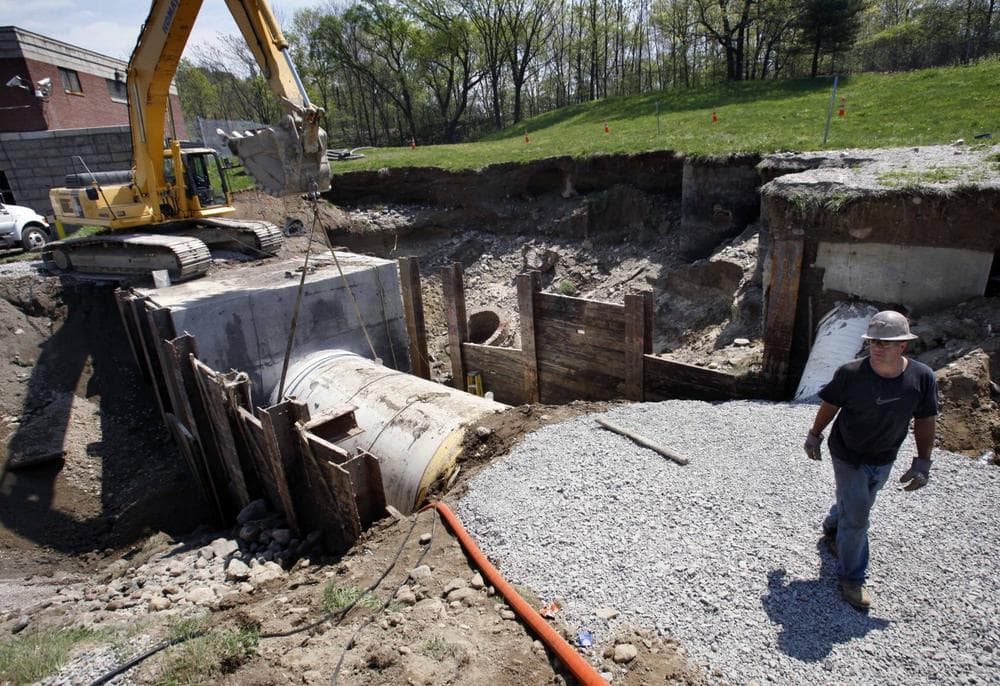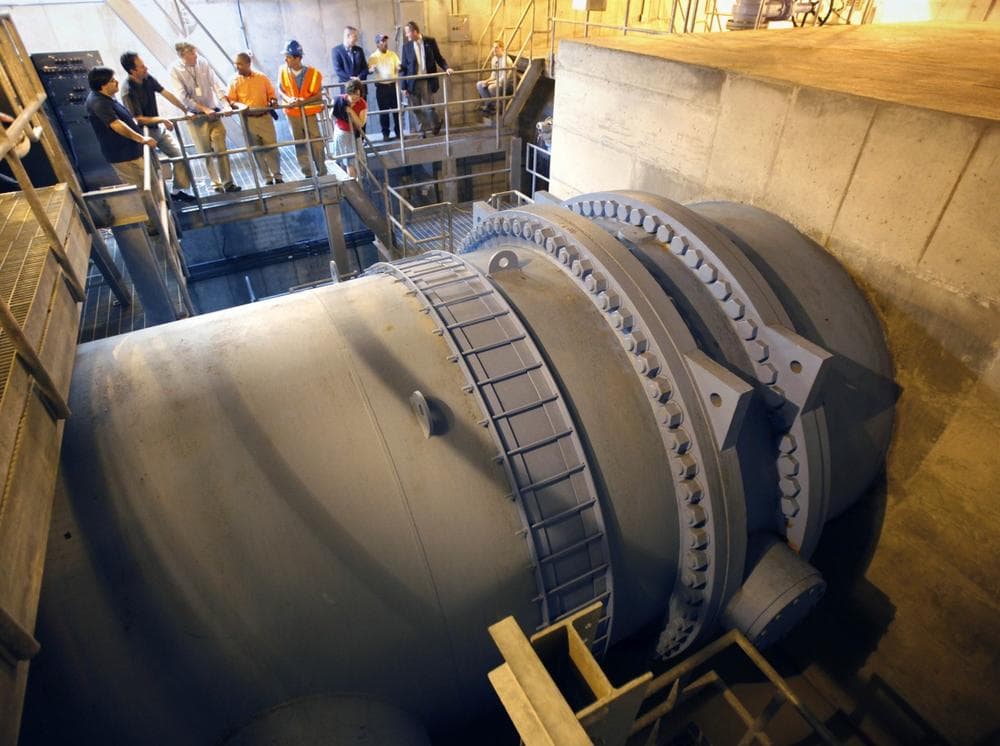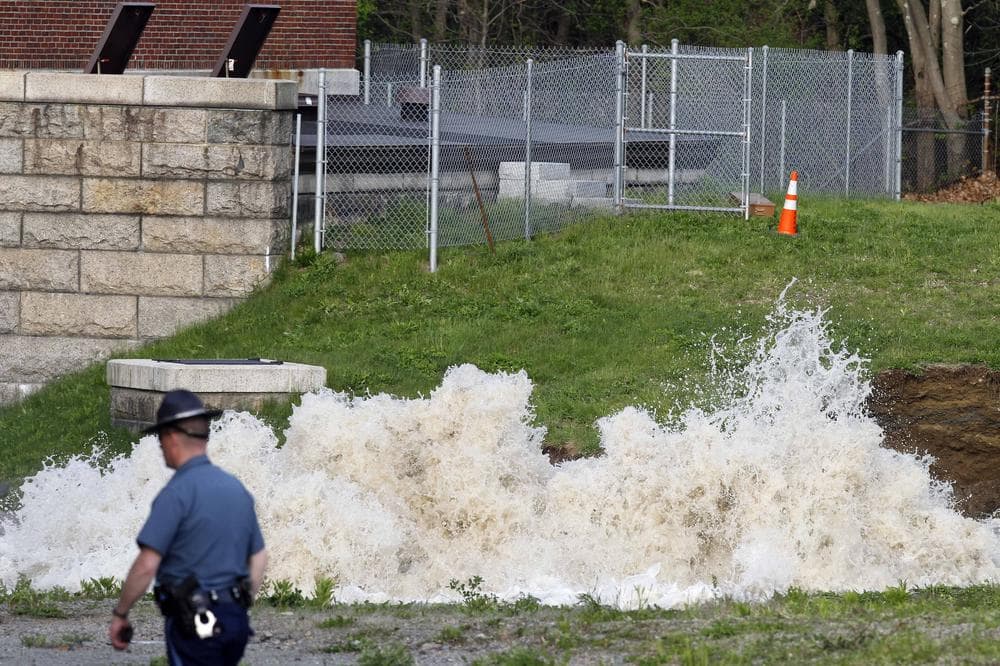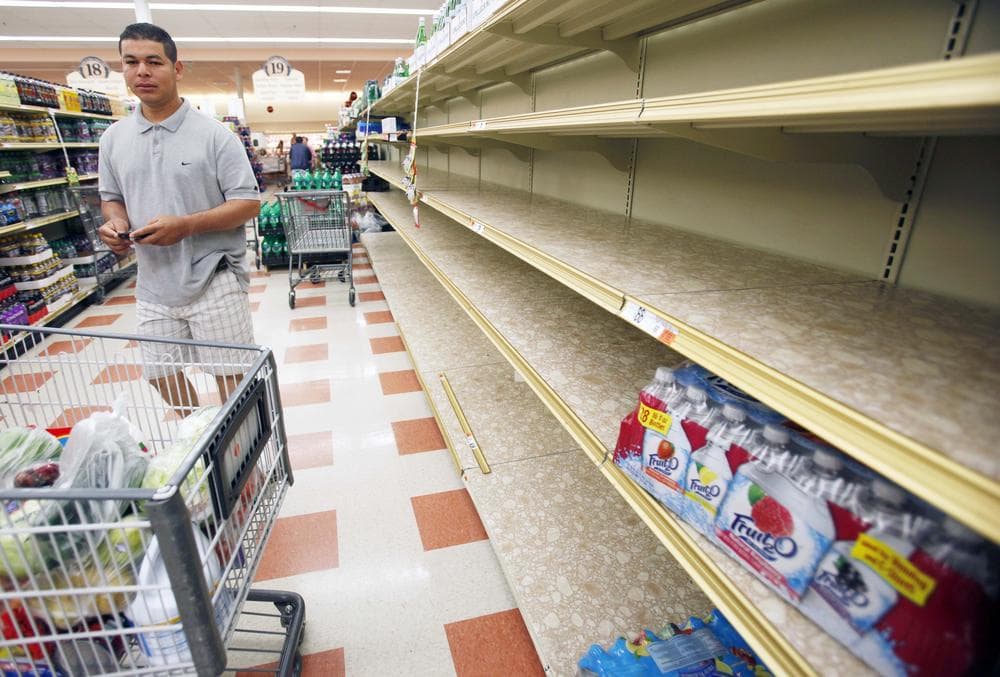Advertisement
Crews Race To Fix Break In Boston's Water Supply

BOSTON — Workers began installing on Sunday a metal collar they hoped would provide a quicker-than-expected fix to a break in a major pipe that inhibited the supply of clean water to 2 million people in the Boston area.
Adding to the pressure was an unseasonably warm spring forecast for the area, with the temperature predicted to reach a summer-like 88 degrees.
There also were economic and social impacts: Restaurants in suburban Lexington shut down Saturday night, unable to wash dishes or serve customers clean water, while police in Revere had to be called into a BJ's Wholesale Club after a run on bottled water turned unruly.
"It was a little unclear whether we could bathe or not," said Leenoel Chase, who was searching for coffee amid the closed shops in Lexington. "I forgot and almost brushed my teeth."

She replaced a planned pasta dinner Saturday night with a more adventurous — but less water-demanding — souffle.
The breach was reported Saturday morning in Weston, about 10 miles west of Boston. It was in a coupling holding together two sections of a 10-foot-wide metal pipe that carries 250 million gallons of treated water a day from the Quabbin Reservoir to some 750,000 households in 30 communities.
Gov. Deval Patrick ordered residents to boil water, since some untreated water has entered the system. It remained safe for firefighting, showering and toilet flushing.
Officials initially said a repair might take weeks, but they located the necessary supplies overnight and welders fashioned custom metal parts in a matter of hours.
They began installing them by midmorning, and then planned to perform a pressure test and water quality tests. They hoped all the work could be completed Monday.
Advertisement
"The good news is we know the extent of the problem; we've got a solution to fix it," said Frederick Laskey, executive director of the Massachusetts Water Resources Authority.
Officials remained puzzled by the cause, since the break occurred in a stretch of pipe that was just seven years old.

Concerned about such a vulnerability in the system, the MWRA has been repairing an older, parallel line, but that $700-million project is still three to four years from completion.
"We were working hard to have a solution in place for just this type of problem. Unfortunately, it came up before we were finished," said MWRA spokeswoman Ria Convery.
Boston's water supply comes from the Quabbin Reservoir, in the central part of the state, to the Wachusett Reservoir, before being treated at a plant in Marlborough. It travels through an 18-foot-wide pipe through Weston, where it branches off into the 10-foot-wide pipe that broke.
When the breach occurred, the MWRA rerouted the clean water through the Sudbury Aqueduct, which hasn't been used in decades. It also briefly tapped the Chestnut Hill Reservoir to maintain pressure and meet expected demand. While the water in the aqueduct was clean, the water from the reservoir - which is in the open air next to Boston College - is not, prompting the boil-water alert.
Yet overnight, Boston residents appeared to heed calls to reduce their water consumption. They used less than 190 million gallons, well below the normal nightly usage of more than 200 million gallons this time of year. The MWRA was able to fill the demand without tapping the reservoir again. Yet the state did not want to drop the boil-water alert because of the prospect of tapping it again.
Patrick declared a state of emergency since the water didn't meet federal clean water drinking standards.
"It's like lake water," said Laskey. "You'll swim in it, but not drink it."
Patrick also asked large supermarket chains to increase their bottled water orders and added that, if needed, the state can distribute emergency drinking water through the National Guard.

Boston Police used bullhorns to broadcast the news as they drove up and down city streets, while electronic state highway signs flashed the same message.
At the height of the breach, the pipe was leaking water into the nearby Charles River at a rate of 8 million gallons per hour, according to state officials. The deluge forced up water levels on the Charles and the state had to activate pumps at a nearby dam, Laskey said.
The authority initially reported 38 communities were under a boil-water order, but some of those communities were only partially supplied by the water system and were removed from the list when they switched to local water sources.
Further information and a complete list of affected communities can be found at the MWRA website. The Department of Environmental Protection website has a FAQ list for boil orders.
Editor's Notes: If the MWRA website is inaccessible due to high traffic, the list of impacted communities is also available on Mass.gov.
This post has been updated to reflect the boil order for 30 communities; authorities originally issued it for 38 communities.
This program aired on May 1, 2010. The audio for this program is not available.